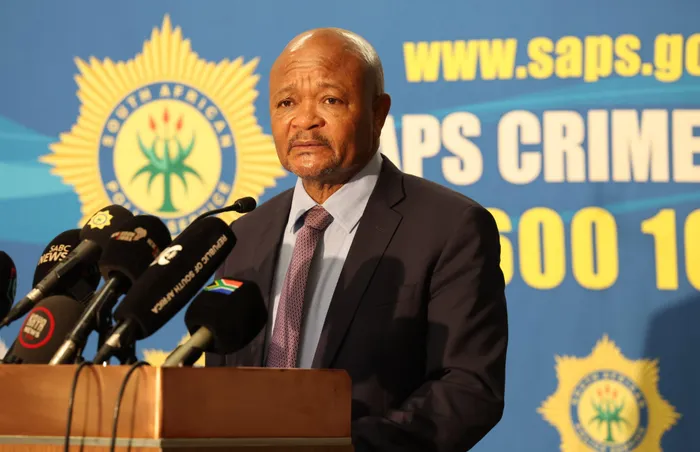SA justice system under pressure: 16,000 bail absconders and 18,000 repeat offenders

Police Minister Senzo Mchunu has revealed that more than 16,000 accused persons have skipped bail.
Image: GCIS / File
MORE than 16,000 accused persons have skipped bail, while over 18,000 paroled prisoners have been re-arrested for committing new crimes.
This was revealed in written responses by Police Minister Senzo Mchunu and Correctional Services Minister Pieter Groenewald to parliamentary questions.
Democratic Alliance (DA) MP Kabelo Kgobisa-Ngcaba had asked Mchunu about the number of bail absconders with currently active cases, among other matters.
“There is a total of 16,012 bail absconders in the Republic that currently have active cases. It should be noted that bail is granted by the courts and is not enforceable by the South African Police Service,” Mchunu said.
Of these, 4,516 cases are more than five years old. Additionally, 262 bail absconders with filed cases are foreign nationals.
“Filed cases implies that the case will re-open immediately should the suspect be arrested,” Mchunu explained.
He declined to reveal how many of the bail absconders were violent offenders, saying instead that the classification of violent offenders is determined by the nature of the offence for which the person was charged.
“Absconders are re-incarcerated when found. When an absconder is incarcerated, and still in prison, they are no longer classified as an absconder.”
He said absconders could only be released when the case that they were arrested for has been finalised in their favour or when they have been granted bail.

Correctional Services Minister Pieter Groenewald.
Image: Henk Kruger / Independent Newspapers / File
In response to separate questions, Groenewald informed Rise Mzansi MP Makashule Gana that a total of 18,002 parolees re-offended while still serving their parole over the past five years.
Groenewald’s response showed that there were 2,832 parolees that re-offended in 2019/20.
The number decreased to 1,426 in 2020/21, only to increase the following year to 1,617, and then rise to 2,164 in 2023/24 and 2,353 last year.
The minister said there were a number of rehabilitation programmes that were currently offered at prisons. These included social work services, psychological services, spiritual care, skills development, and formal education.
Groenewald said the rehabilitation programmes targeted risk factors that were more likely to change and fluctuate over time.
“The programmes are designed to help offenders to be able to cope with conditions that promote criminal and offending behaviour.”
He said correctional programmes were needs-based, targeting offending behaviour based on the correctional sentence plans.
“The programmes are non-therapeutic and aim to raise awareness, provide information and develop life skills. The offenders working in production workshops, bakeries and farms acquire skills to contribute towards their social functioning.”
Groenewald added that the department provided offenders with sport, recreation, arts, culture and library programmes.
“These programmes and services are provisioned in such a manner that they add value to the lives of participants and are central to the rehabilitation plan of each offender in order to assist them to re-order their lives in a positive manner, taking their social economic and cultural background into account.
“These programmes aim to provide work opportunities to offenders for keeping them active, provide skills to be gainfully employed upon release.”
Related Topics: